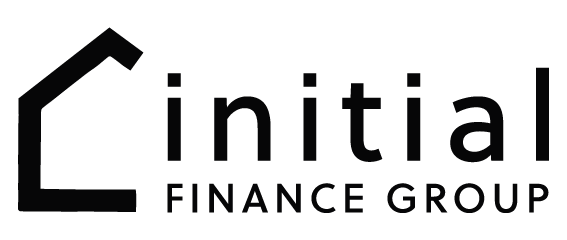Imagine this: You’ve found your dream home, negotiated what you thought was a fair deal, and you’re ready to sign on the dotted line. But then, as the process unfolds, you realize that the initial mortgage quote you received was far from accurate. Suddenly, you’re faced with higher monthly payments, unexpected fees, and a sense of frustration that no one should have to endure.
In this blog, we’ll delve into what underquoting means in the context of the mortgage market and provide you with invaluable insights on how to protect yourself from becoming its unfortunate victim.
What is underquoting?
Underquoting is one of the most common deceptive practices that occurs when a lender or mortgage broker intentionally provides borrowers with an inaccurate estimate of the costs associated with a mortgage loan. This estimate, often referred to as a quote or rate offer, understates the actual expenses that borrowers will incur over the life of the loan.
Why does underquoting happen?
In a competitive mortgage market, some lenders or brokers may underquote to gain a competitive edge and lure potential borrowers in with the promise of lower upfront costs.
Mortgage brokers, in particular, might be driven by commissions tied to the loans they sell. Underquoting can result in higher sales volumes and, consequently, larger commissions for the broker.
In some regions, there may be lax regulations or enforcement related to mortgage lending, making it easier for unscrupulous lenders and brokers to engage in underquoting without facing significant consequences.
What must you do to avoid underquoting?
The mortgage market can be complex and highly competitive, and making an informed decision can save you money and stress in the long run. That said, before anything else, conduct thorough research. Start by gaining a deep understanding of the mortgage market and assess your own financial situation thoroughly. Remember that the lowest interest rate isn’t always the best option; consider the overall terms of the mortgage.
To understand this in-depth, seek recommendations from lenders and mortgage service providers from your trusted network. With them or personally, carefully review the terms and conditions associated with different mortgage offers.
While you’re at it, ask them for multiple detailed quotes. A detailed quote provides you with a clear breakdown of all the costs and fees associated with your mortgage, ensuring that there are no hidden surprises down the road. Obtaining multiple quotes allows you to get a sense of the current market rates, identify any outliers, and see the full range of options available to you. Ensure that the quotes you receive are for the same type of mortgage product with similar terms.
Once you have multiple quotes in hand, don’t be afraid to negotiate. Ask questions about any terms or fees that seem unclear or too high. Lenders may be willing to adjust their offers to win your business.
Ultimately, the best mortgage for you should align with your financial situation, goals, and risk tolerance. Factor in your monthly budget, long-term plans, and the stability of your income.
Watch out for these red flags:
- extremely low fees or closing costs and interest rates significantly lower than the prevailing market rates.
- lenders or brokers who pressure you into making quick decisions.
- incomplete or vague documentation related to your mortgage. Be sure to get all terms and conditions in writing.
- inconsistencies between what the lender verbally promises and what is documented in the contract.
- lack of licensing or accreditation by relevant authorities.
If you encounter suspicious signs:
- Take your time to review all documents and understand the terms of your mortgage.
- Don’t hesitate to ask questions to your home loan agent about any aspect of the mortgage.
- Consider consulting with a financial advisor or attorney who specializes in real estate transactions to help you understand the terms and spot any irregularities.
- Report immediately to the appropriate regulatory authorities in your area.
- Walk away and explore other options. Your financial well-being is too important to risk.
Know the legal protections and regulatory measures.
Various legal protections and regulatory measures have been put to combat underquoting and ensure fair practices in the mortgage industry. These measures are designed to safeguard the interests of consumers and promote transparency. Here are some of the key regulatory safeguards:
- National Consumer Credit Protection Act (NCCP): The NCCP Act is arguably the cornerstone of mortgage lending regulation in Australia. It establishes the framework for responsible lending and sets out the obligations of credit providers, including lenders and mortgage brokers, to assess borrowers’ suitability and capacity to repay loans.
- Australian Securities and Investments Commission (ASIC): ASIC plays a vital role in overseeing and enforcing compliance with the NCCP Act. It is responsible for monitoring the conduct of financial institutions, mortgage brokers, and lenders to ensure they adhere to responsible lending practices.
- Responsible Lending Guidelines: ASIC’s responsible lending guidelines provide specific guidance on assessing a borrower’s creditworthiness. These guidelines are essential for lenders and mortgage brokers in ensuring that loans are suitable for borrowers and that they can afford them.
- Mortgage Broker Regulation: Given the prevalence of mortgage brokers in the Australian market, the regulation of mortgage brokers is crucial. Mortgage brokers must hold an Australian Credit License (ACL) and adhere to ethical and professional standards set by industry bodies like the MFAA and FBAA.
These are particularly crucial in ensuring the integrity of the Australian mortgage industry and the protection of consumers. Borrowers should know these regulations and their rights when seeking a mortgage in Australia.
Beyond your individual circumstances, understanding how to avoid underquoting contributes to a broader context. It promotes transparency and integrity in the mortgage industry, ensuring that consumers like you are protected and treated fairly.
So, as you embark on your mortgage journey, remember these insights, apply them wisely, and share them with others. Your dream home awaits, and now, you’re equipped to pursue it with confidence and peace of mind.

